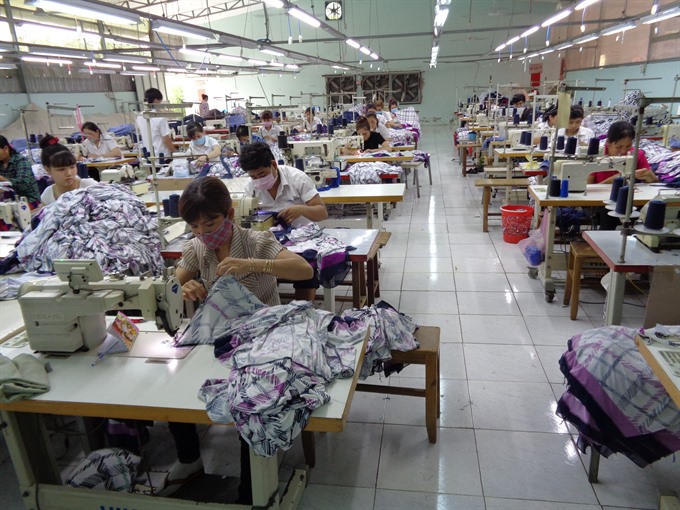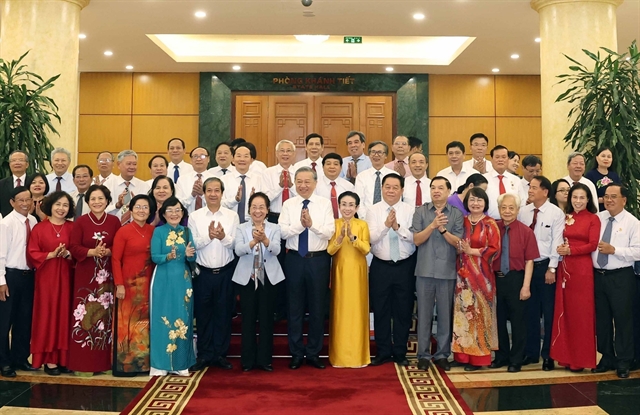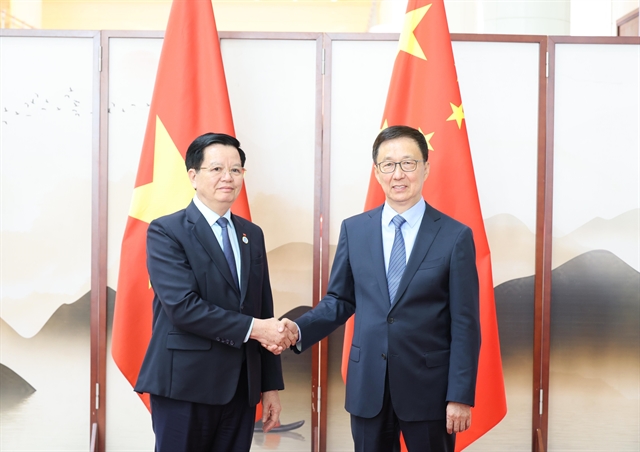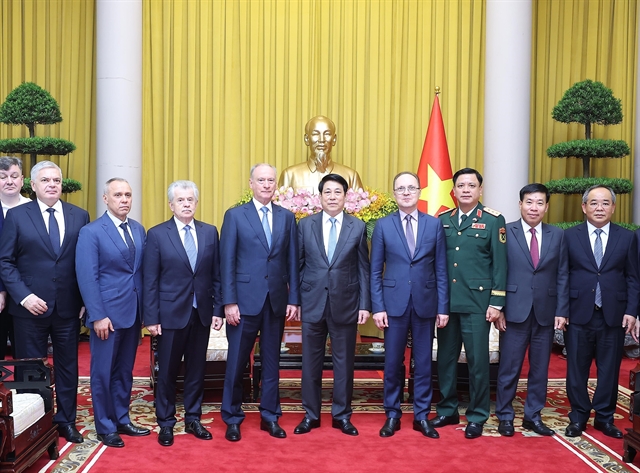 Society
Society

" />Under the hot afternoon sun in a small workshop, Lê Thị Thùy Vân is busy weaving plastic chairs along with six other women.
 |
| The local Tân An garment factory has generated many jobs for women in An Hiệp Commune in Bến Tre Province’s Ba Tri District. — VNS Photo Hoàng Nguyên |
by Hoàng Nguyên
BẾN TRE – Under the hot afternoon sun in a small workshop, Lê Thị Thùy Vân is busy weaving plastic chairs along with six other women.
Vân is the owner of the 40 sq-m workshop that was built thanks to co-financing from a fund which is part of the Adaptation in Mekong Delta (AMD) project in the Mekong Delta province in Bến Tre.
In 2013, she started the chair-weaving business in Ba Tri District’s An Hiệp Commune after noticing that weavers in other districts were making good money.
“In the beginning, there was only a small work station in my house, but now I have the workshop which was built a few months ago,” she said.
She received VNĐ75 million (US$3,300) from the AMD project and contributed VNĐ60 million ($2,630) of her own cash and other assets as a counterfund.
Thanks to the workshop, Vân has been able to expand her business and hire more workers.
“Now we have a bigger store shed for stocking goods, and we can take more orders. So more workers have come to us,” she said.
Household businesses like Vân’s have helped generate many jobs for local people, especially women, at a time when climate change has affected farming in the Delta.
Most job-seekers at Vân’s workshop are women in their 30s and 40s. Some work at the shop, while others take the jobs home.
Nguyễn Thị Hồng Mai, 38, began chair weaving for a co-operative team when her youngest child was four months old.
She switched to Vân’s place about two years ago as it was closer to her house.
“Back then when my child was too young, I couldn’t find a job. When I heard about this job and realised I could bring the work back home, I started doing it to make extra money for my family,” she said.
Now her child is five years old and the job is the main source of income for her family. Mai’s wages of around VNĐ150,000 a day are used for food and allowances for her children.
“Working on the paddy field, I had to face hot and cold weather, and heavy rain, but now I don’t have to fear those things,” she said. “I can have a job all the time unlike farming, when I had to wait for others to give me a job. And after the crops were harvested, nobody would hire me.”
 |
| Lê Thị Thùy Vân (left) works at her weaving business in An Hiệp Commune in Bến Tre Province’s Ba Tri District. —VNS Photo Hoàng Nguyên |
Public-private partnership
Located a few kilometres from Vân’s chair-weaving workshop is the Tân An garment factory, a local business established in 2012 by Nguyễn Trọng An and his wife.
In 2016, after joining the AMD project and receiving financial support from its public-private partnership fund, An expanded his business to a 2,000-sq. m facility and upgraded to new equipment to improve quality and production.
Thanks to the upgrade, his workforce has gone from fewer than 100 to 250 people, including satellite groups that work at home.
An has successfully secured export contracts with Japanese, South Korean and Malaysian companies.
“Around the end of 2016, the commune authorities told us about the AMD project,” he said. “We wanted to have better tools and equipment but we faced financial challenges at that time. After joining the project, we were able to export to more demanding markets.”
Forty per cent of the workforce, which is mostly women in their 30s and 40s, are from poor families.
An offers job training to new unskilled workers and lends machines and tools to others who work at home.
Võ Thị Ngọc Hoa, 36, works at the factory to take care of her family. The mother of three began work at the factory when her second child was two years old.
Before that, she had been working in factories in the southeastern province of Bình Dương, and married a man who was also working there.
When her first child was eight years old, she moved back to her hometown and rented a small field to grow rice. But after several years of suffering losses, she stopped farming.
“The water salinity level was too high, and, besides, I couldn’t afford fertiliser, which led to lower yields,” she explained.
She decided to return the land to the owner and began working in the garment factory, earning around VNĐ5 million a month, and sometimes up to VNĐ6 million working overtime.
Working as a garment worker has helped her pay for food and her children’s school fees.
Nguyễn Khắc Hân, director of the AMD Bến Tre Project, said the project so far has funded 11 local enterprises, creating hundreds of jobs for locals.
“For a non-farm business model, we just need to invest around VNĐ100 million, and this can generate jobs for dozens of people,” he said.
Thanks to non-farm businesses like Vân’s and An’s, many women in the commune now have a more stable livelihood and no longer have to do odd jobs, he added.
“A non-farm job can pay around VNĐ4 million ($175) a month. For poor people who earn that level of income, they can possibly find their way out of poverty.” — VNS
* The AMD Bến Tre project started in 2014, covering 30 communes in eight districts in the province. The six-year project has been financed with a $11 million loan and $6 million grant from the International Fund for Agriculture Development. The Vietnamese Government gave around $3.78 million, and the direct beneficiaries contributed $3.88 million as a counterfund. A similar project is being implemented in Trà Vinh Province. The project’s main goals are to help poor and near-poor households adopt more sustainable livelihoods and build resiliency to respond to climate-change risks in the Mekong Delta.




